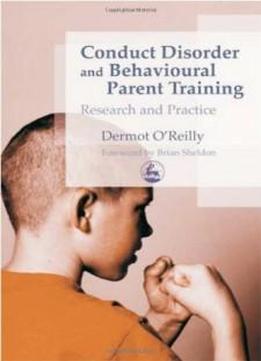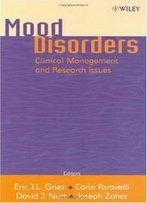
Conduct Disorder And Behavioural Parent Training: Research And Practice
by Dermot O'Reilly /
2005 / English / PDF
3.1 MB Download
The progress made with children with conduct disorder in specialist
schools often does not transfer to the home, but this book shows
how behavioural parent training and applied behaviour analysis can
help professionals work with parents to continue improving their
child's behaviour."Conduct Disorder and Behavioural Parent
Training" provides a comprehensive introduction to the field of
conduct disorder and the individual, familial and social factors
that influence the development of persistent antisocial behaviour.
The author presents thorough evidence for the effectiveness of the
following aspects of behavioural parent training: compliance
training; encouraging good behaviour through praise, enthusiasm and
attention; using 'time out' as an effective punishment technique;
transfer of improvements to school setting; and effects of
treatment on the child's siblings. He considers the relative impact
and costs of different settings for parent training, and outlines
ethical issues and future directions for research in this area.
This book is essential reading for all professionals involved in
the care of children with conduct disorder, as well as psychology
and social work students and academics.
The progress made with children with conduct disorder in specialist
schools often does not transfer to the home, but this book shows
how behavioural parent training and applied behaviour analysis can
help professionals work with parents to continue improving their
child's behaviour."Conduct Disorder and Behavioural Parent
Training" provides a comprehensive introduction to the field of
conduct disorder and the individual, familial and social factors
that influence the development of persistent antisocial behaviour.
The author presents thorough evidence for the effectiveness of the
following aspects of behavioural parent training: compliance
training; encouraging good behaviour through praise, enthusiasm and
attention; using 'time out' as an effective punishment technique;
transfer of improvements to school setting; and effects of
treatment on the child's siblings. He considers the relative impact
and costs of different settings for parent training, and outlines
ethical issues and future directions for research in this area.
This book is essential reading for all professionals involved in
the care of children with conduct disorder, as well as psychology
and social work students and academics.











